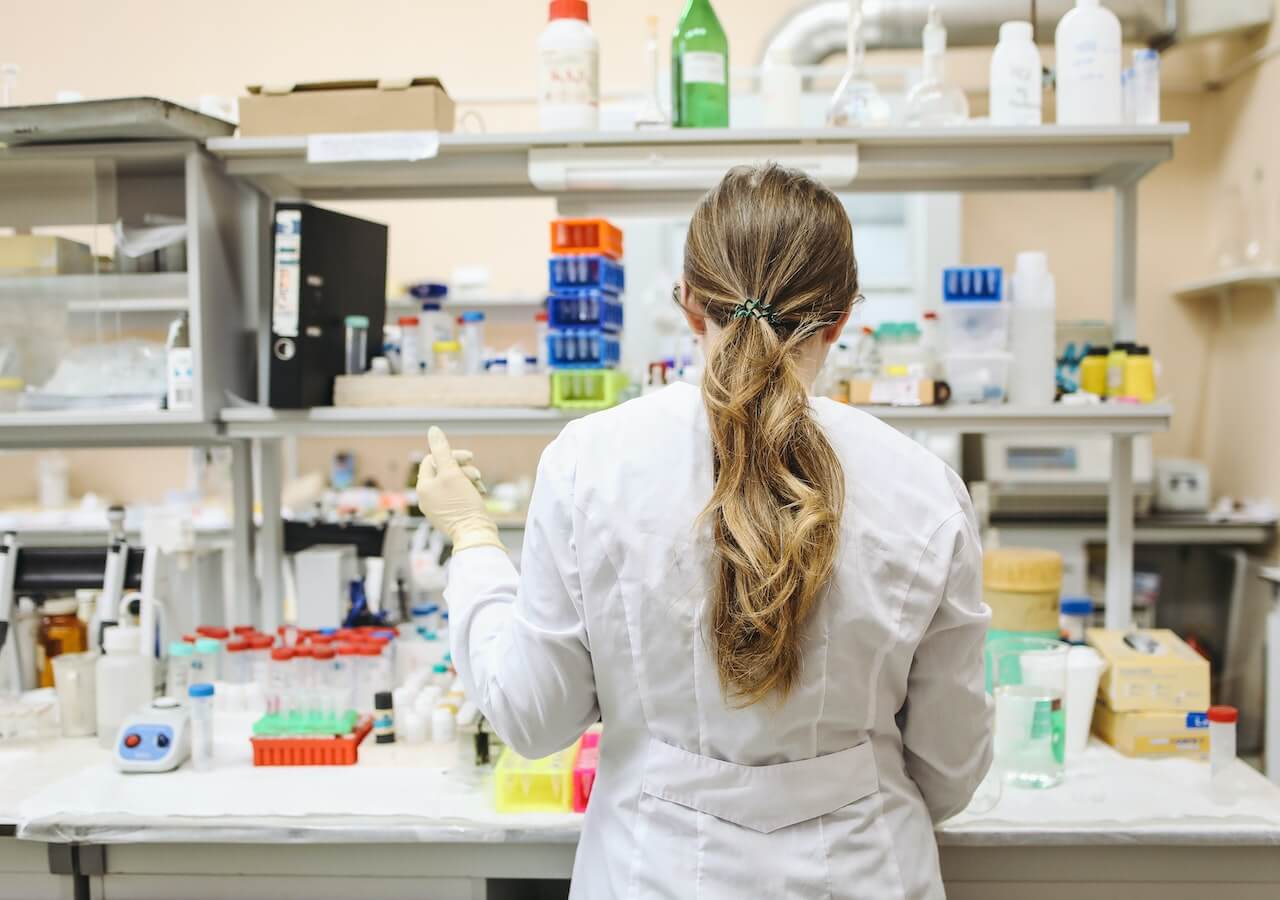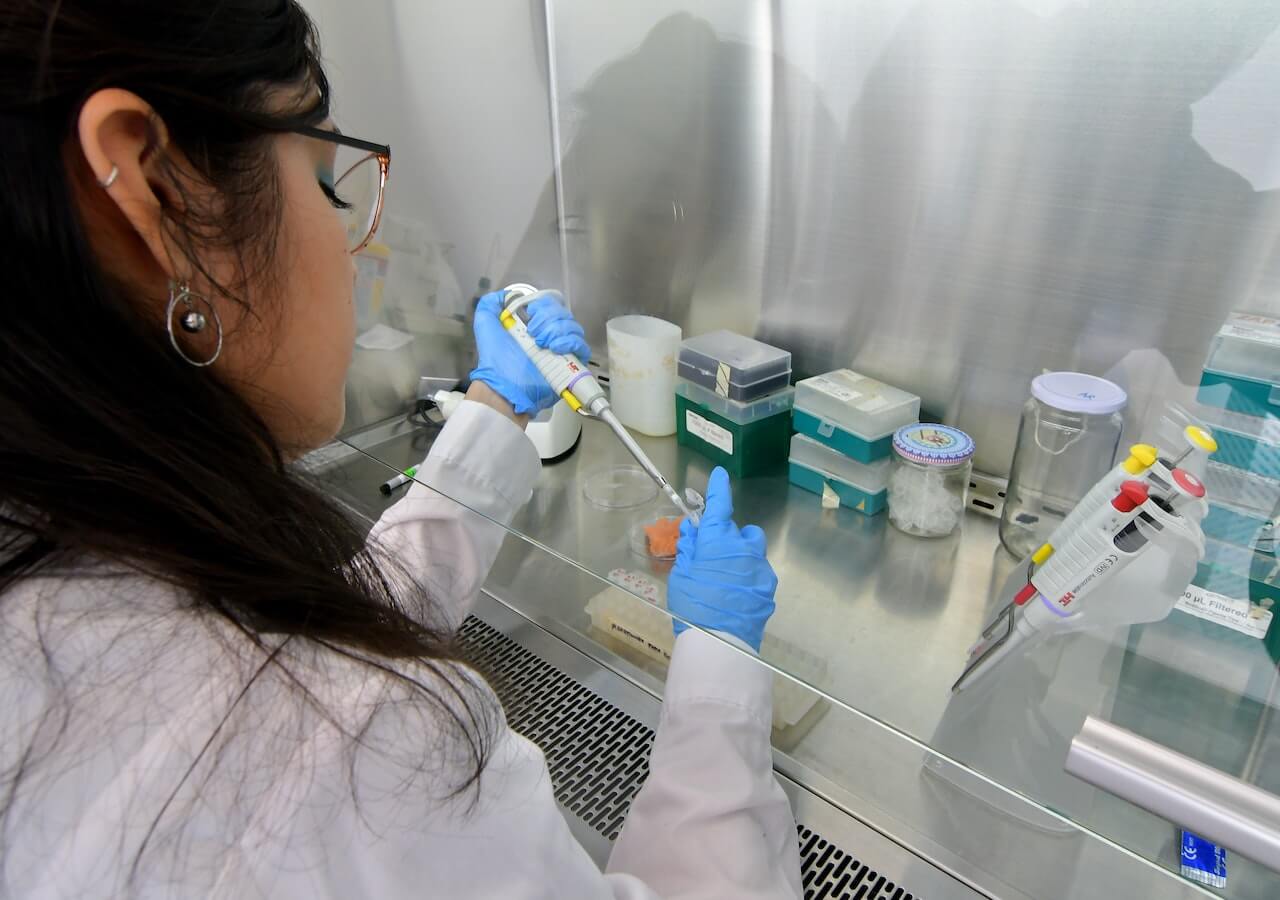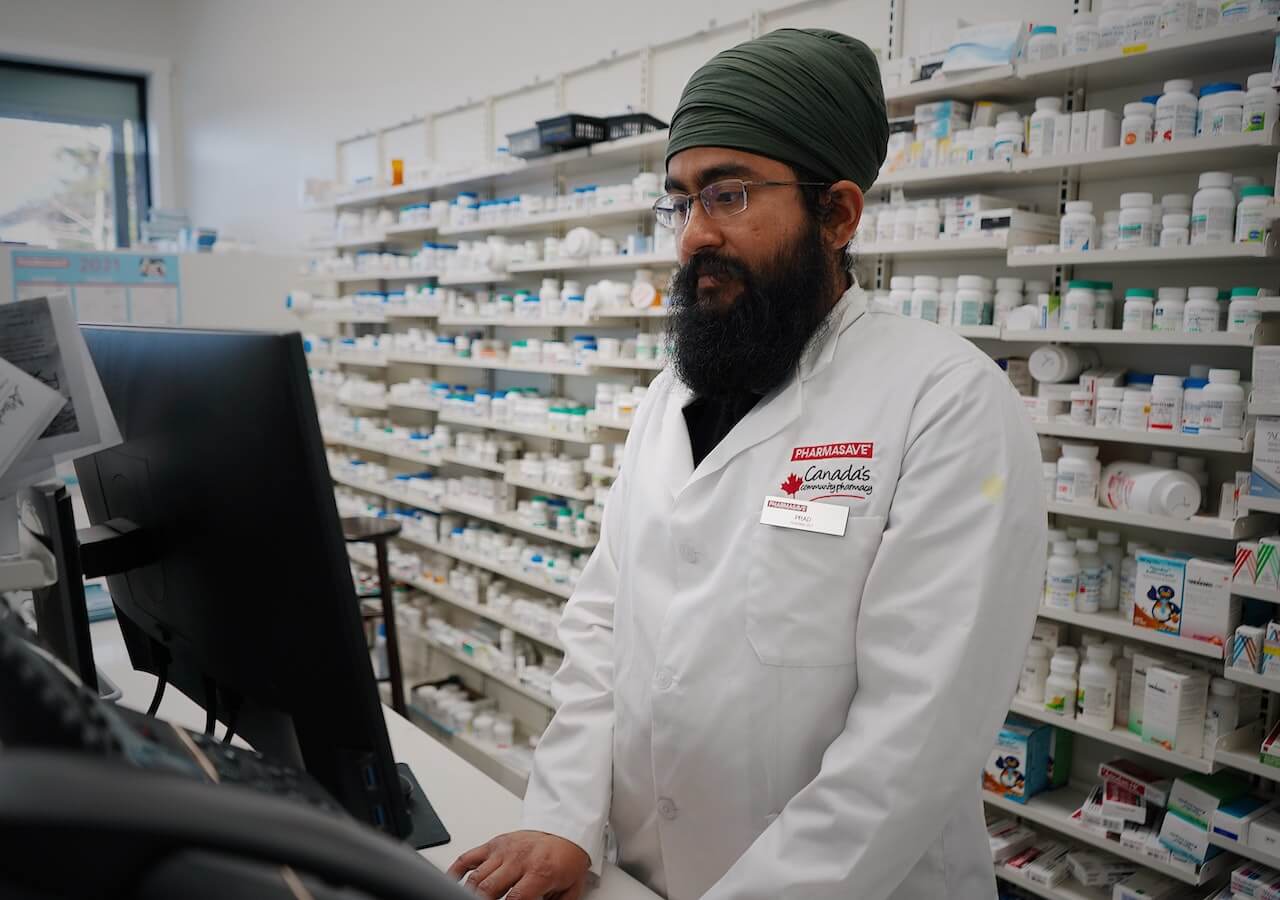Best Pharmacy Schools in the US

In the ever-evolving landscape of healthcare, pharmacists are integral members of the healthcare team, playing a pivotal role in ensuring the safe and effective use of medications. As the demand for skilled pharmacists continues to rise, aspiring pharmacy professionals seek institutions that provide them with top-tier education and training.
In this blog from Bold.org, we'll explore the best pharmacy schools in the United States. These institutions are academically renowned and offer students a comprehensive and innovative education, equipping them with the knowledge and skills needed to excel in this vital healthcare profession. Whether you're a prospective pharmacy student or simply interested in understanding the educational landscape of pharmacy in the U.S., read on to learn more about the finest institutions shaping the future of pharmaceutical care.
The first step to becoming a practicing pharmacist in the United States is to earn an undergraduate degree from a four-year university. Paying for an undergraduate degree can be a significant financial obstacle for many students interested in pharmacy and their families. Luckily, scholarships on Bold.org can help reduce the cost of college!
Create a free Bold.org profile today to browse and apply for exclusive healthcare scholarships!

How Long Is Pharmacy School?
A Doctor of Pharmacy program or PharmD program typically takes four years to complete. These programs are designed to provide students with a comprehensive education in pharmaceutical sciences, clinical practice, and patient care.
Apply for pharmacy scholarships to start budgeting for the lengthy process ahead of you!
Here's a general overview of what students can expect to learn in each year of a PharmD program:
Year 1
In the first year, pharmacy school students focus on building a strong foundation in basic sciences such as chemistry, biology, and physiology. This knowledge forms the basis for understanding drug mechanisms and interactions. Students also learn how to accurately calculate drug dosages and compounding--a critical skill for pharmacists. Some pharmacy programs may also include early pharmacy practice experiences where students observe and interact with patients in community or hospital settings.
Year 2
In their second year, students delve deeper into the study of drugs, including their chemical structures, mechanisms of action, and pharmacokinetics. Students also learn about treating common diseases and medical conditions, including drug selection, dosing, and monitoring. At the same time, pharmacy school students continue to gain practical experience in various pharmacy settings and practice their skills in medication therapy management, patient counseling, and pharmacy management.
Graduate school scholarships on Bold.org can help reduce the financial burden of a Doctor of Pharmacy degree!
Year 3
Building on previous years, pharmacy school students study more complex medical conditions and drug therapies in year three. Students refine their patient counseling, medication therapy management, and clinical assessment skills. Furthermore, as part of the Advanced Pharmacy Practice Experiences or APPEs, students complete rotations in various pharmacy practice settings, applying their knowledge and skills under the supervision of experienced pharmacists. The APPEs are a critical component of the pharmacy programs.
Year 4
In their final year, students typically complete a series of APPEs in diverse healthcare settings such as hospitals, community pharmacies, ambulatory care clinics, and specialty pharmacies. These rotations provide hands-on experience and help students choose their career path.
In addition, some pharmacy programs require students to complete research projects or presentations on topics of their choice for a capstone project. Students may also have the opportunity to take elective courses in areas of interest, allowing for further specialization.
Finally, students prepare for the North American Pharmacist Licensure Exam (NAPLEX) and the Multistate Pharmacy Jurisprudence Examination (MPJE) to become licensed pharmacists.

Best Pharmacy Schools in the US
University of North Carolina Chapel Hill
Located in the picturesque town of Chapel Hill, North Carolina, the University of North Carolina at Chapel Hill (UNC Chapel Hill) is a prestigious institution with a rich history of academic excellence. Known for its commitment to providing top-tier education, UNC Chapel Hill boasts a stellar reputation in pharmacy education.
The UNC Eshelman School of Pharmacy consistently ranks among the top pharmacy schools in the United States. The school offers a Doctor of Pharmacy program that equips pharmacy students with the knowledge and skills necessary to excel in a rapidly evolving healthcare environment. UNC Chapel Hill also offers graduate programs in pharmaceutical sciences, pharmaceutical outcomes and policy, and other related fields, providing students with various pathways to specialize and advance their careers.
UNC Chapel Hill is a hub of pharmaceutical research and innovation. Students have the opportunity to engage in groundbreaking research projects with faculty in areas such as drug discovery, drug development, pharmacogenetics, and more. The university's location in the Research Triangle Park, a hub for pharmaceutical and biotechnology companies, provides students with numerous opportunities for experiential learning and internships.
Furthermore, UNC Chapel Hill's strong partnerships with healthcare institutions and regional pharmacies ensure that PharmD program students receive comprehensive clinical training.
Get Matched to Thousands of Scholarships
Create your Bold.org profile to access thousands of exclusive scholarships, available only on Bold.org.
Create Free ProfileUniversity of California San Francisco (UCSF)
The University of California San Francisco's School of Pharmacy is internationally acclaimed for its pioneering contributions to the pharmacy field and its commitment to advancing healthcare. The Doctor of Pharmacy program emphasizes evidence-based practice and is renowned for its rigorous curriculum. Graduates of the PharmD program at UCSF are well-equipped to excel in diverse pharmacy career paths, from clinical practice to research and pharmaceutical industry roles.
UCSF is synonymous with cutting-edge research and innovation. The School of Pharmacy houses world-class faculty who conduct groundbreaking research in various pharmaceutical sciences, including drug discovery, precision medicine, and drug development. Students have the opportunity to engage in transformative research projects and receive generous research funding from the university.
Furthermore, one of UCSF's distinguishing features is its commitment to interdisciplinary collaboration. Pharmacy students at UCSF have the opportunity to work alongside healthcare professionals from diverse fields, fostering a holistic understanding of patient care and the integration of pharmacy services into comprehensive healthcare teams.
UCSF's strategic location in the heart of San Francisco also provides students access to a vast network of renowned healthcare institutions, including UCSF Medical Center, one of the nation's top-ranked hospitals. This proximity enables PharmD students to gain invaluable clinical experience and exposure to a wide range of patient populations.

University of Michigan, Ann Arbor
Nestled in the charming city of Ann Arbor, the University of Michigan Ann Arbor is home to the College of Pharmacy, a prominent institution in pharmacy education and research.
U-M Ann Arbor's College of Pharmacy offers a comprehensive Doctor of Pharmacy program known for its academic rigor and commitment to producing pharmacists of the highest caliber. The college also provides graduate programs for those pursuing advanced pharmacy practice experiences.
U-M Ann Arbor's proximity to leading healthcare institutions, including the University of Michigan Health System, provides students with ample opportunities for clinical training and experiential learning. This exposure to diverse healthcare settings provides pharmacy students ample opportunities to gain hands-on experience, reinforcing their clinical skills and knowledge.
Furthermore, the institution is home to distinguished faculty engaged in cutting-edge research spanning various pharmaceutical disciplines. From drug discovery and drug development to medication therapy management, students at the University of Michigan have the opportunity to engage in impactful research that contributes to the advancement of pharmaceutical sciences and patient care.
University of Minnesota
The University of Minnesota, often referred to as U of M, stands as a pillar of academic excellence in the heart of the North Star State. Among its many esteemed programs, the College of Pharmacy at the University of Minnesota stands out as a leader in pharmacy education and research.
The College of Pharmacy at the University of Minnesota consistently ranks among the top pharmacy schools in the United States. The College of Pharmacy offers a comprehensive Doctor of Pharmacy program that equips students with the knowledge and skills necessary to excel in a dynamic healthcare landscape. The College of Pharmacy also provides advanced degree programs in pharmaceutical sciences, social and administrative pharmacy, and other specialized fields.
Moreover, U of M's commitment to interdisciplinary collaboration is evident throughout its academic programs. Pharmacy students benefit from working alongside peers and professionals from various healthcare fields, fostering a holistic understanding of patient care and the importance of collaboration in the healthcare industry.
As a top pharmacy school, the University of Minnesota's proximity to leading healthcare institutions provides students in the PharmD program with unparalleled clinical training and experiential learning opportunities. Students can develop strong clinical competencies by working with pharmacists at the University of Minnesota Medical Center and the Mayo Clinic.

University of Florida
Nestled in the vibrant, sun-soaked city of Gainesville, the University of Florida's College of Pharmacy exemplifies excellence in pharmaceutical education and research. Its Doctor of Pharmacy program is renowned for its academic rigor and commitment to producing pharmacy professionals of the highest caliber.
The College of Pharmacy at the University of Florida is home to a distinguished pharmacy faculty engaged in groundbreaking research spanning various pharmaceutical disciplines, from drug discovery and development to medication therapy management and precision medicine. Students can actively engage in transformative research projects while in pharmacy school, contributing to the advancement of pharmaceutical sciences and patient care.
The University of Florida's strategic location also provides pharmacy students access to a network of esteemed healthcare institutions and pharmacies. UF Health, including UF Health Shands Hospital, is a major partner in healthcare and clinical training, offering pharmacy students invaluable hands-on experience.
Furthermore, UF's College of Pharmacy strongly emphasizes community engagement and service. Students actively participate in outreach initiatives at the pharmacy school that underscore the importance of accessible and equitable healthcare for all, locally and globally.

Frequently Asked Questions About the Best Pharmacy Schools in the US
What is a PharmD degree?
A PharmD degree or a Doctor of Pharmacy degree is a professional degree that qualifies you to become a licensed pharmacist. Pharmacists are responsible for dispensing medications, providing medication counseling to patients, monitoring drug therapy, and ensuring safe and effective medication use.
How long does it take to complete a PharmD program?
A PharmD program typically takes four years to complete, although the length of time may vary depending on the institution and any additional programs or tracks.
What are the licensure requirements for pharmacists?
Licensure requirements for pharmacists vary by state but typically include passing the North American Pharmacist Licensure Exam (NAPLEX) and the Multistate Pharmacy Jurisprudence Examination (MPJE).
Now that you’ve learned about the top pharmacy schools in the United States, you’re ready to embark on your journey of becoming a pharmacist! Don’t forget to create a free Bold.org profile today, and check out our scholarship blog to learn more about careers for college students.